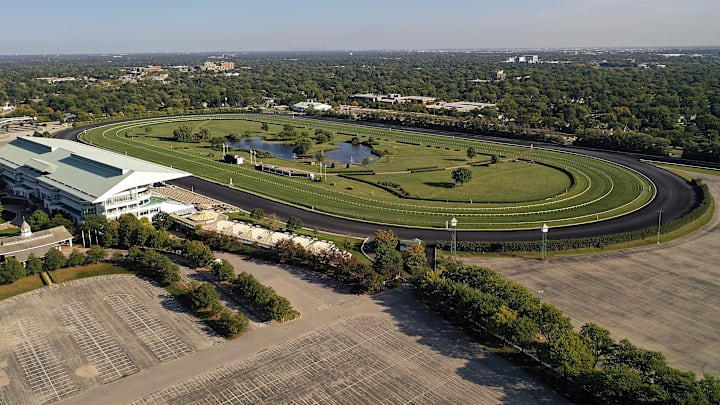In 2022, the Chicago Bears won a bid to enter into a purchase agreement to buy what used to be known as the Arlington International Racecourse -- also known as Arlington Park. The Bears did not close on that property until late January 2023. Even before they owned it, the Cook County Assessor took it upon himself to chase the sale price of $197 million. Chasing a sale, especially one that had not even closed before the tax year's lien date, is bad practice. The previous owners filed a property tax appeal and settled with the Arlington Heights school districts at the Cook County Board of Review.
That was just the start though. The Cook County Assessor raised the value of the property for 2024 back up to $197 million. However, he shifted the value of the property from the improvement (building) value to the value of the land. This can be more difficult to argue in a property tax appeal, however, seeing the value of the land increase from $2.18 per square foot to $14.00 per square foot should be a major red flag for even the the average person.
If we look at this logically, we had a piece of property that was valued at $33 million before the sale in 2022 was announced. That property saw its value increase to $197 million -- the announced purchase price -- despite nothing else changing with the property at the time. After an appeal, the value was settled at $95 million. Then, the following year, the Chicago Bears started the demolition process, tearing down the grandstand and all other improvements. Again, this property with the grandstand and improvements was valued at $33 million in 2022. Why the vast difference then?
The simple answer is that it was a money grab. Cook County and Arlington Heights saw this as a way to increase their tax revenue on the property by roughly 600%. The Chicago Bears appealed the property taxes for 2024 and argued the property should not be worth more than $60 million, also claiming it should see a tax assessment of 10% (used for vacant land properties) instead of the 25% (used for commercial properties) being currently used. A settlement was never achieved but the Board of Review reduced the value to $125 million, giving the Bears roughly $2 million in tax savings.
That might seem like a big savings, but when the property taxes were roughly $2.3 million in 2022 and $6.7 million (after an appeal) in 2023, seeing the taxes owed now at just under $9 million is a problem for anyone looking to develop a property. Especially, when that property should have seen a decrease in value due to demolition as opposed to an increase. Also, if the Chicago Bears got their way and the property was assessed at 10% instead of 25%, the taxes owed would have dropped to roughly $3.5 million.
Arlington Heights propses tax bill for Chicago Bears stadium
The back-and-forth property tax battle led to the Chicago Bears looking at other options. This led to a proposal by Kevin Warren and the Bears to fund $2 billion for a publicly-owned stadium on the lakefront. It appeared that the Arlington Heights property was now an afterthought. However, during a village board meeting on Monday, officials proposed a tax bill they believe to be fair and that could bring the Bears back to the table. Will the school districts agree with it? Probably not.
The tax bill proposes that for 2024, the property be valued at 25% for the first half of the year and 10% for the second half of the year. Although the demolition took place after the lien date, this would help reduce the property taxes owed for 2024 to roughly $6.3 million -- essentially the same as what was owed in 2023. The proposed tax bill goes further to assess the property as vacant land in 2025, meaning the property will be assessed at 10% for the full year. At its current reduced value of $125 million, that would bring the 2025 taxes owed down to $3.6 million.
For any subsequent years, the proposed tax bill states the property shall see at least a 3% increase in assessed value, but no more than a 10% increase.
The proposal feels like a last-ditch effort to try and bring the Chicago Bears back to the table. Will it be enough, or was this move too little, too late? If I was Kevin Warren, I'd be irritated it took this long to even see a proposal like this. It seems as though Arlington Heights was negotiating in bad faith. However, this is the Village's proposal, and the school districts do not have to agree with it. Honestly, I doubt they will.
The problem is that once the Chicago Bears go back to the city and sell the Arlington Heights property, the potential increased tax revenue likely goes with them. The school district has every right to fight for fair tax revenue, but is what they are fighting for actually fair? Has the value of this property increased to $125 million in two years? No. Has the purchase of the property increased the amount of money needed by the school districts over the last two years? Yes, but not nearly as much as the school district has been proposing.
On its head, this newly proposed tax bill by Arlington Heights seems very fair. However, will it be enough for Kevin Warren and the Chicago Bears to head back to the suburbs? I guess we will need to keep watching this story closely to find out.
